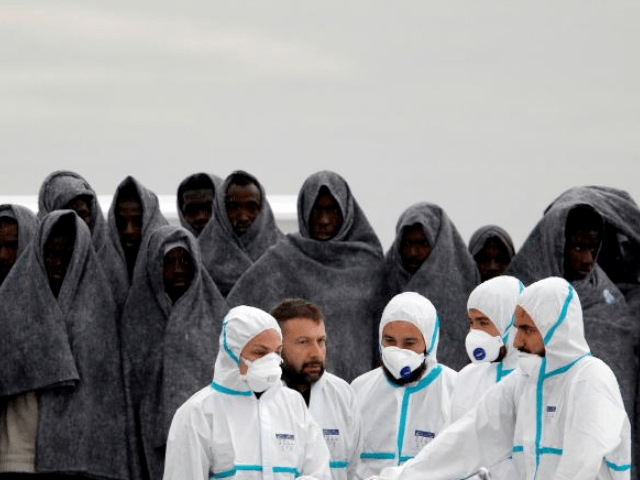MILAN (AP) — The European Union is trying to find countries willing to take 177 people rescued at sea after Italy sought its help to deal with yet another migrant standoff with Malta.
The Italian coast guard ship Diciotti has been sitting off Italy’s Lampedusa island since rescuing the migrants last week. Rome asked Malta to take them in but Malta — the EU’s smallest member country — refused, saying the migrant boat wasn’t in distress and that the migrants declined Maltese assistance, preferring to continue toward Italy.
In Brussels, the EU’s executive Commission said it had begun contacting other EU countries to see who’s willing to help but warned that it has no authority to handle search and rescue missions or to say where migrants should be put ashore.
“Contacts are ongoing,” Commission spokeswoman Tove Ernst said, without naming the countries it is in touch with.
She added: “Search and rescue is a question of international law. It’s a matter for national authorities. It’s not within the competence of the European Commission.”
The Italian Foreign Ministry said in a statement Sunday that it had written to the Commission asking it to work out a solution, as Brussels has done on previous occasions recently. The Diciotti is working with the EU border and coast guard agency Frontex on Mediterranean rescue operations.
The letter follows threats by Italian Interior Minister Matteo Salvini to send the migrants back to Libya, which is not considered a safe country by the EU.
Italy’s populist government is refusing to accept migrants rescued at sea. In recent weeks, Spain, France, Luxembourg, Germany and Portugal have agreed to host them.
The latest incident happened a day after the NGO rescue ship Aquarius — with 141 migrants aboard, most of them from Eritrea and Somalia — was finally allowed to dock in Malta after a four-day standoff.
EU leaders in June agreed to find a solution to the problem but none has been found yet.
“The EU cannot rely on ad-hoc arrangements. What we need are sustainable solutions,” Ernst said.

COMMENTS
Please let us know if you're having issues with commenting.